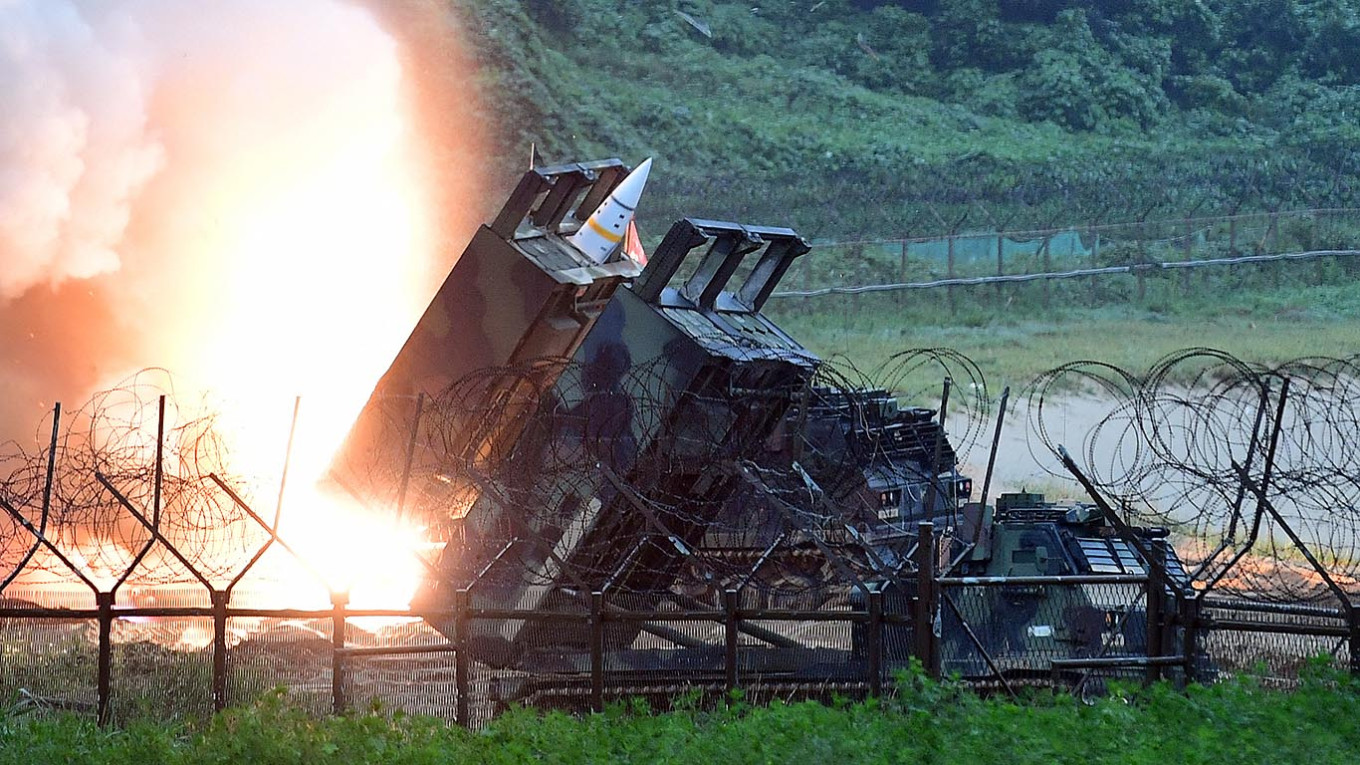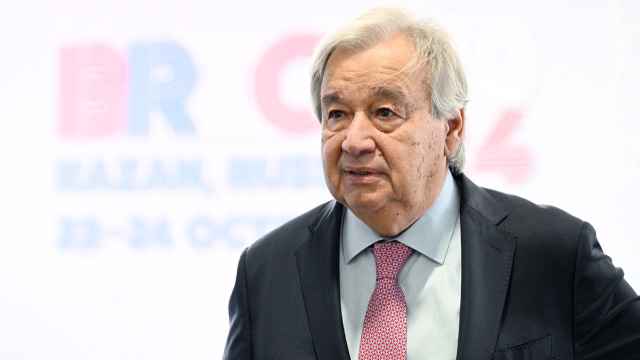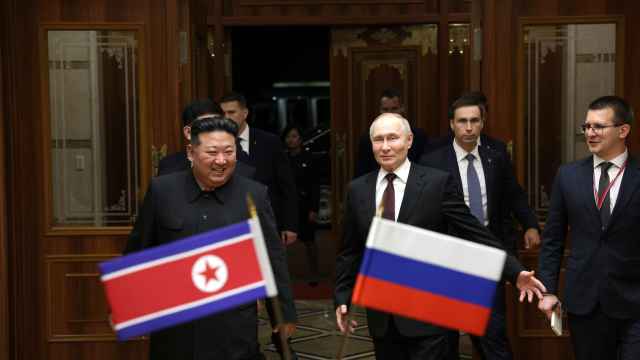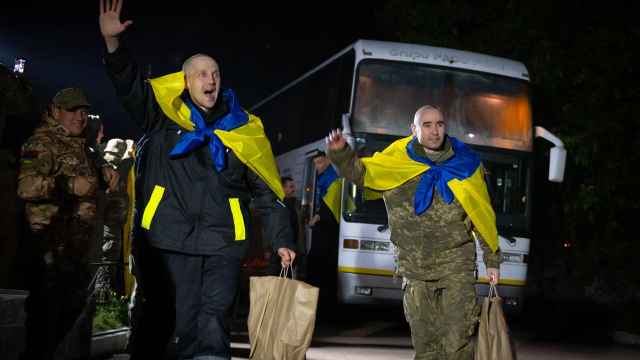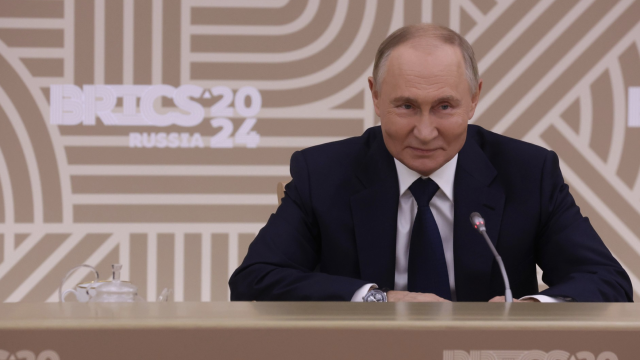German Chancellor Friedrich Merz appeared Monday to reveal that Ukraine’s allies — namely, Britain, the U.S. and France, as well as Germany — had lifted all restrictions on Kyiv’s use of Western weapons to strike military targets on Russian territory. It looked like a bold step to untie Ukraine's hands and give it greater freedom to defend itself.
But a day later, the picture is less clear. On Tuesday, Merz’s deputy and Finance Minister, Lars Klingbeil, told reporters that “There is no new agreement that goes beyond what the previous government had in place.”
The new German leader’s predecessor Olaf Scholz had resisted calls to donate German-made Taurus missiles to Ukraine — even ruling it out in a debate during February’s election — arguing that doing so risked drawing Berlin into direct conflict with Russia.
Merz’s response to Klingbeil does little to resolve any confusion.
"The issue of limiting the range of deployed weapons played a role a few months and a few years ago. As far as I know, and as I said yesterday, the countries that imposed range limitations have long since abandoned these requirements," he said at a press conference in Finland.
"In this respect, yesterday in Berlin, I described something that has been happening for months: namely, that Ukraine has the right to use the weapons it receives, even beyond its own borders, against military targets on Russian territory," he added.
Kyiv has been appealing to Berlin for its Taurus missiles, which can reach targets as far as 500 kilometers behind the front lines — hundreds of kilometers further than the range of the British Storm Shadow, French SCALP and American ATACMS missiles already in Ukraine’s arsenal.
Despite Merz’s advocating for their delivery when he was in opposition, whether German Taurus missiles will be added to Ukraine’s arsenal is yet to be seen.
Merz said this month that Germany would no longer publicly discuss the matter of Taurus missiles — a decision that is at least partially motivated by strategic reasons.
President Vladimir Putin understands the German language from his time serving as a KGB agent in Communist East Germany, Merz has noted. If the debate over Taurus causes divisions within Merz’s coalition government — let alone between other parties in parliament — it could provide opportunities for Moscow to undermine Germans’ faith in their leadership.
But Merz and his Defense Minister Boris Pistorius have also criticized dissenting rhetoric, including concerns about becoming a belligerent against a nuclear power. Only 36% of Germans in 2024 supported sending the weapons to Ukraine and a majority were skeptical of Berlin increasing military spending.
A report released last year by the U.S.-based Institute for the Study of War lists over 200 military targets on Russian soil within the 300-kilometer range of weapons currently at Kyiv’s disposal. Taurus could extend that range to as far as Volgograd — and possibly close to Moscow.
Still, experts cautioned against the suggestion that the Taurus alone could turn the tide of the war.
“No weapon is a wonder weapon,” Ed Stringer, retired Air Marshall and former director of Britain’s Joint Force Command, told The Moscow Times. “But it’s a huge logical fallacy to say that if no single weapon will win a war, all weapons are dispensable.”
Kremlin spokesman Dmitry Peskov said Monday that lifting missile range restrictions would be dangerous for Ukraine and its allies, adding: "These potential decisions, if such decisions have indeed been made, run absolutely contrary to our aspirations for reaching a political settlement.”
For years, Moscow has warned that using Western weapons to strike targets on Russian soil risked escalation. However, British Storm Shadow missiles have been used since 2023 to hit targets in occupied Crimea and the Zaporizhzhia region, which Russia considers part of its territory. Peter Dickinson from the Atlantic Council think tank said this “made a mockery” of Moscow's red lines in the war.
The Biden administration gave Kyiv the green light to strike targets in Russia with U.S.-made ATACMS missiles in November 2024. Three lieutenant colonels in the Russian Air Force were killed in a Storm Shadow strike on Russia’s Kursk region later that year. There are no confirmed reports of French SCALP missiles being used on internationally recognized Russian territory.
A Message from The Moscow Times:
Dear readers,
We are facing unprecedented challenges. Russia's Prosecutor General's Office has designated The Moscow Times as an "undesirable" organization, criminalizing our work and putting our staff at risk of prosecution. This follows our earlier unjust labeling as a "foreign agent."
These actions are direct attempts to silence independent journalism in Russia. The authorities claim our work "discredits the decisions of the Russian leadership." We see things differently: we strive to provide accurate, unbiased reporting on Russia.
We, the journalists of The Moscow Times, refuse to be silenced. But to continue our work, we need your help.
Your support, no matter how small, makes a world of difference. If you can, please support us monthly starting from just $2. It's quick to set up, and every contribution makes a significant impact.
By supporting The Moscow Times, you're defending open, independent journalism in the face of repression. Thank you for standing with us.
Remind me later.



